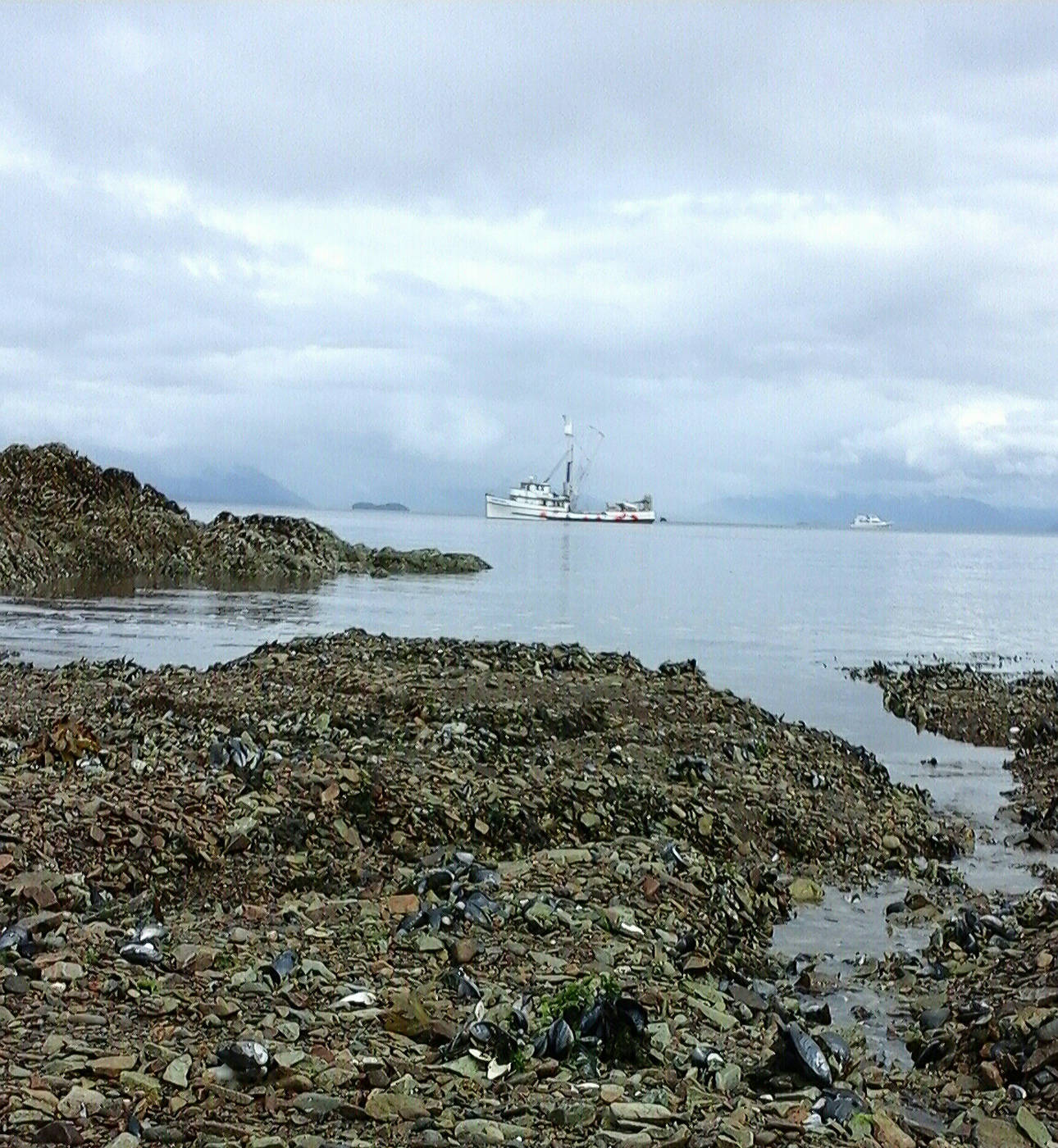When we moved to the remote, abandoned cannery where I grew up, I was nine years old and had some vestigial memories of civilization. My little brothers, Robin and Chris, were five and four respectively and between the two of them they had precious few recollections of a world filled with people and social rules. And although, like a good parent, our mom had warned all of us about “stranger danger,” there was no real fear where we lived (we rarely saw any human other than the members of our immediate family) that a stranger would come and try to lure us away with candy.
Freed of all social restrictions, it wasn’t long before my little brothers decided, in the summertime, that clothes and boots were too much trouble to bother with. They ran around the rocky beaches barefoot, in only their underwear half of the time, and thought we were crazy not to do the same. Their little feet hardened to puncture-proof leather.
Every so often our parents took the skiff to Meyers Chuck to pick up the mail, visit our mom’s family, and bask in the luxury of adult conversation. I sometimes wondered what would happen if the weather kicked up and they weren’t able to get back.
The five of us kids would be completely alone in the wilderness with no nearby neighbors that we could ask for help if there was an emergency. The thought didn’t scare me — I was too accustomed to living in the wilderness — but I did think it would be a great adventure for a few days or so, before the novelty of cooking every meal for ourselves wore off.
On one of these days when our parents were gone, my little brothers disappeared.
The former cannery covered more than twenty acres with three distinct beaches and two sides separated by a peninsula of heavily forested rock bluffs. There were lots of places to look for them…but it didn’t matter. They were nowhere to be found.
It was bear season and we lived right next to a major salmon spawning creek. We saw black bears all the time and the occasional brown bear. But they were usually so intent on gorging themselves on salmon that they’d ignore us, not to mention our 20-plus dogs that loved to harass the bears as they fished.
We counted up the dogs and realized that a few of them were missing, too. Had the bears gotten tired of a straight seafood diet and decided to go for a surf and turf meal?
It wasn’t until our parents got home, many hours later, that we found out where the boys and the dogs had been.
According to my brother Robin, who now lives in Ketchikan:
“There were two guys in a seine skiff pulling on a net and holding it to the beach when Chris and I came out of the woods with a few dogs. The crew was totally bewildered, wondering where the heck we came from. Of course we were barely dressed and had no footwear on so they were a little perplexed about what to do. We told them we lived there, but they weren’t buying it and called the skipper of their purse seiner, the Memento, to ask what they should do.
“The skipper, Mr. Harvey Hanson, said to bring us out with the net. They grabbed my brother and me and the dogs and we went out to watch them haul the net in. While on board the Memento we were fed every kind of junk food on the planet: Coke, Doritos, Snickers bars, pig skins, etc., etc. We were in heaven. And so were the dogs, who got treats, too.
“The crew was so amazed that we were walking around Southeast Alaska barefooted.They would test how tough our feet were by poking, pinching, and even rubbing jellyfish on them. The bottoms of our feet were like leather.”
Meanwhile, as the boys were living high off the hog, we three older kids were in dread of our parents’ return, wondering what on earth we’d tell them, what sort of excuse we could give for the boys’ disappearance.
Robin says, “Once they hauled the net in, the crew skiffed us around the corner [of the rock bluff peninsula mentioned earlier] where they finally saw the floathouse and knew we actually had a home to live in. As they pulled out of the bight and headed back to the boat my parents arrived in their skiff from visiting Meyers Chuck.”
Our mom says that when she realized that her two youngest kids had blithely gone aboard a boat and would happily have stayed there chowing down on junk food until they disappeared from our lives forever, she was appalled. She said that for years she thought about how they could have just disappeared and no one would have had a clue what had happened to them.
Robin adds, “When my mom got out of the skiff she was a little perturbed. ‘What did I tell you about strangers?’ We looked at each other and just mumbled. These were good strangers that fed us!”
To make up for our mom’s understandable distress, Captain Hanson threw a nice sized king salmon into our parents’ skiff and explained his and his crew’s concerns about finding the boys apparently abandoned in the wilderness.
Mutual good feelings resulted and our mom allowed Robin to write to Captain Hanson, who very nicely wrote back several times. The next year the Memento’s crew picked up the boys, with parental permission this time, and fed them up on junk food again. When they came home they were loaded down with candy bars, but what they treasured most was the lasting memories of the Memento and her crew.
• Tara Neilson writes from a floathouse between Wrangell and Ketchikan.

